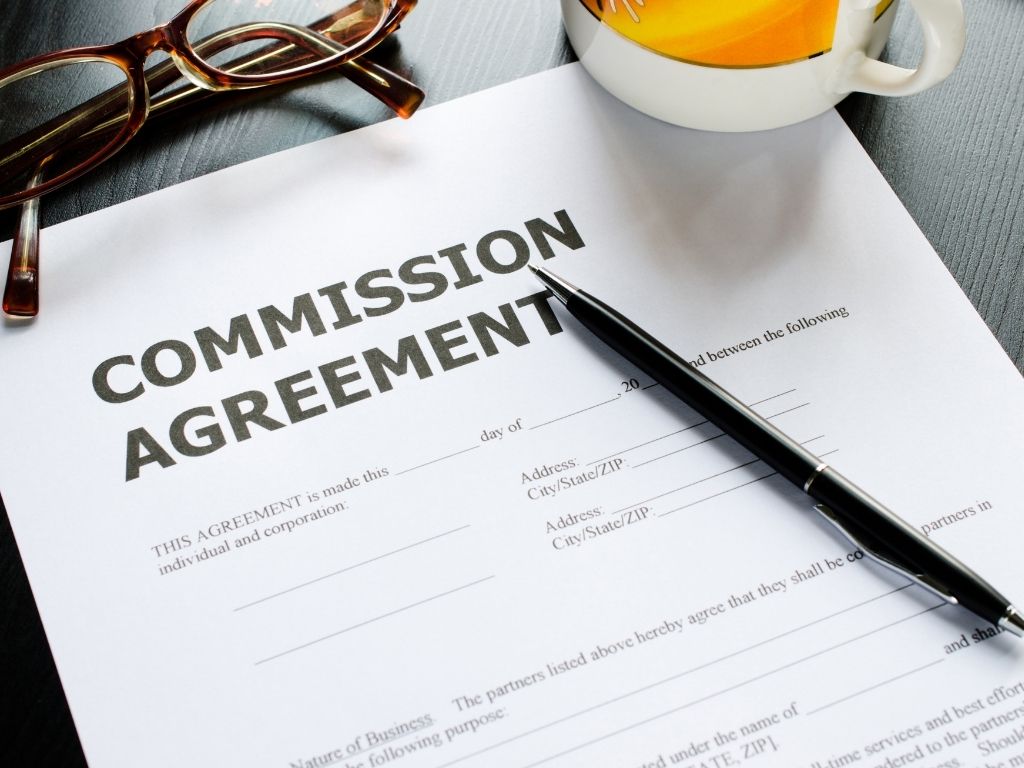When you buy or sell real estate, if you use a real estate agent, there will be real estate commissions to deal with. As a buyer, you typically don’t pay the commissions directly – the seller pays them. However, the fees are usually figured into the sales price. The seller wants to make a profit after all fees and that includes the real estate commission.
So how do you calculate real estate commission if you’re selling a home? Here’s what you need to know.
Common Terms You’ll Come Across
Before you can calculate the real estate commission, you must know the basic terms.
- Asking price – This is the price the seller is asking but doesn’t mean he/she will get. You can use it as a guide to come up with your bid, but in general, you’ll pay less (and sometimes more) than the asking price.
- Selling price – The selling price is the price both parties agreed on and is on the sales contract. This is the number the real estate commission is based on, so it’s an important number.
- Real estate commission – This is the fee paid to the real estate agents. It’s often split between the buyer and seller’s agent. How it’s split depends on the agreement between both parties. Sometimes it’s split 50/50, but there are other terms too. In general, real estate commission is 6% of the sales price.
- Discount commissions – Some real estate brokers offer discounted commissions, which means less than the typical 6% commission. Before accepting this deal, ask what the agent provides. A discounted commission usually means fewer services.
Negotiating Real Estate Commission
Real estate commission isn’t set in stone and you’ll find a lot of variation here depending on the real estate agent and location. You can still negotiate as needed. Of course, most agents want the 6% commission, but there are ways to find a compromise.
- Shop around – If you have other offers from agents for a commission lower than 6%, you can use that to negotiate with the agent you want to use. Most will provide a comparable offer if they want your business.
- Provide referrals – Real estate agents thrive on referrals. If you can provide the agent with referrals, he/she may discount your commission as a way of saying ‘thank you.’
- Sell during a slower season – If you sell your house during the off-season, you may have better luck negotiating with real estate agents. When they have less business, they’re more willing to do what’s necessary to get more clients, including lowering their fees.
- Know the average commission in the area – A 6% real estate commission is common, but not necessarily the only commission agents charge. Ask around to friends and family who sold a home recently and see what they paid. You may find lower commissions are common in your area, so it’s important to double check average real estate agent commissions before making any assumptions.
Calculating The Real Estate Commission
Once you work out a commission with your real estate agent, it’s important to do the math and see what it will cost you.
It’s a simple calculation.
Commission Percent/100 x Sales price = Real Estate Commission
For example, if you agree on a sales price of $300,000 and a 6% commission, you’d pay:
6/100 x $300,000 = $18,000
You may see some commissions listed as 6% of the first $x and 3-4% of the remaining $x sales price. For example, a real estate agent may charge 6% for the first $200,000 and 3% for any sales price beyond that amount.
Let’s say you sold your house for $400,000. This would look like:
6/100 x 200,000 = $12,000
3/100 x 200,000 = $6,000
The total commission would be $18,000.
How Does Real Estate Commission Work For Buyers?
Buyers don’t pay real estate commission out of their own pocket. Your buyer’s agent works ‘for free’ but not really.
You don’t have to pay him/her, but he/she receives a commission from the seller’s agent. Fortunately, this part of the process is out of your hands. You don’t have to make any decisions or negotiate anything.
The seller’s agent usually has a plan in place that he/she advertises to buyer’s agents. The plan shows how the seller will split the commission. Like we said earlier, it may be 50/50, but in certain areas seller’s agents keep a larger portion of the commission. For example, they may offer a 60/40 split.
Sellers Don’t Pay Out Of Pocket Either
Rest assured, sellers don’t pay the real estate commissions out of pocket either. It comes out of the sale proceeds, which is why it’s fixed into the sales price.
When a seller sells the house without an agent, they can often ask for a lower price because they don’t have to include the 6% commission, but if they use an agent, they’ll typically inflate the sales price to make up for the cost.
Sellers have other closing costs too, but let’s leave those out of the equation right now. If a house sells for $300,000 at 6% commission, the seller would walk away with $282,000 in net sales. If a seller sold the house without an agent, he/she could ask $282,000 or around there and still walk away with the same amount of money.
Bottom Line
Real estate agents provide plenty of value, and may even help you get more money for your house. If you’re buying a house, they can help you find the right house and make important decisions about it, especially if you’re investing.
While you may pay a higher price for a house or earn less money in your pocket because you have to pay the real estate commission, the cost is often worth it. Before you hire a real estate agent, make sure you understand what he/she charges, what services are provided, and how the contract works (including the fine print).



